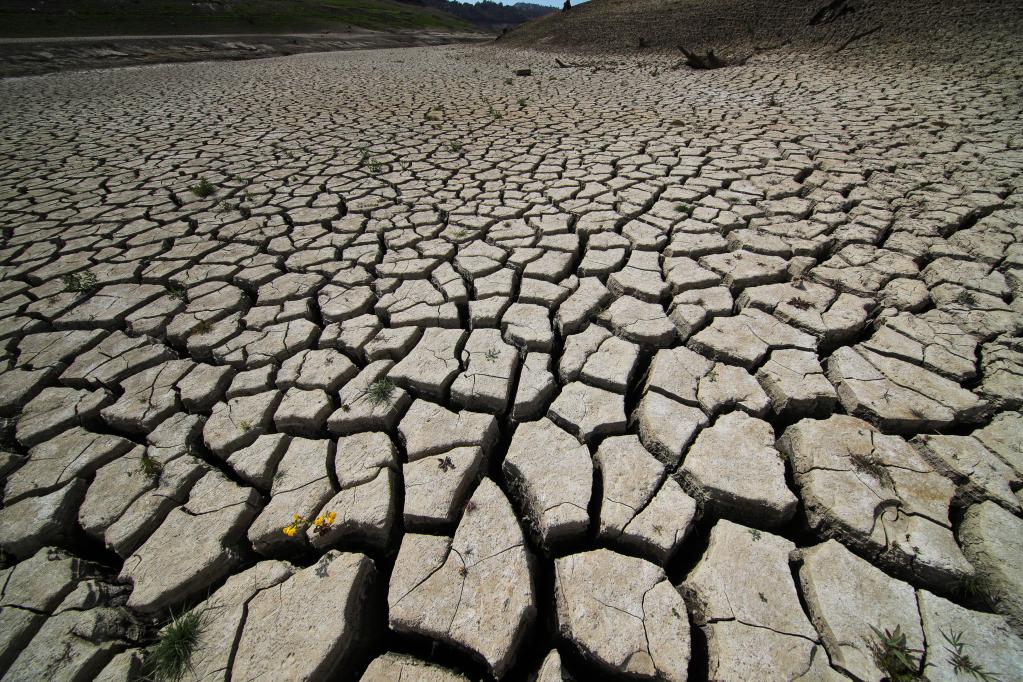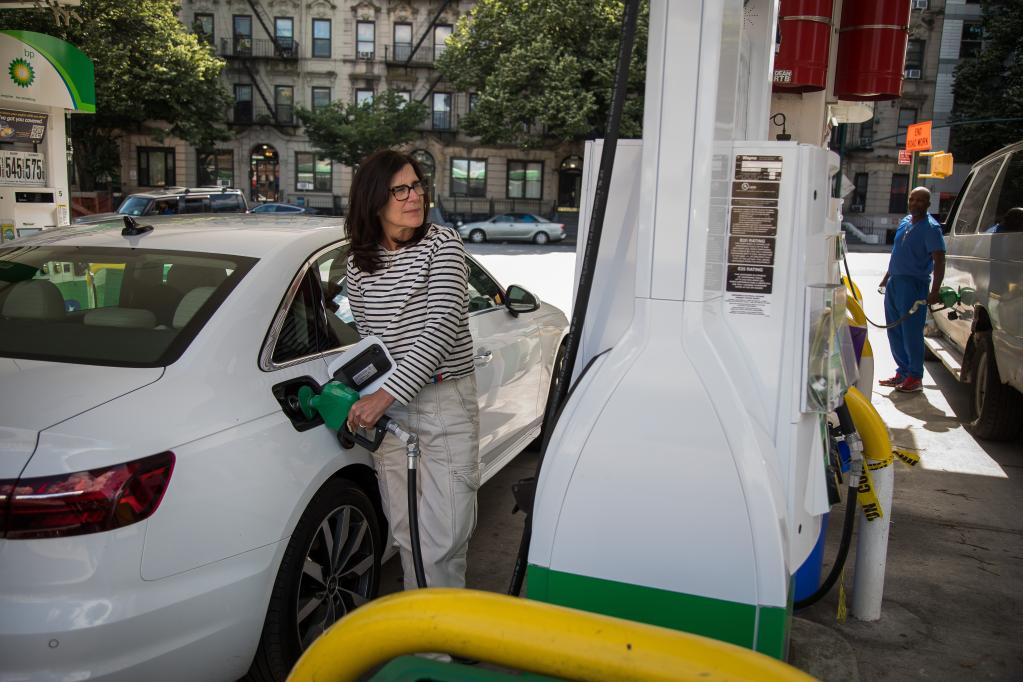Experts concerned about U.S. Supreme Court limiting EPA in curbing emissions

Photo taken on April 20, 2021 shows cracked soil in drought-hit Morgan Hill, California, the United States. (Photo by Dong Xudong/Xinhua)
Despite Biden's goal to halve the country's greenhouse gas emissions by 2030 and zero out carbon emissions from power plants by 2035, the United States "has made only modest progress combating climate change through federal policy in recent years," The New York Times reported Friday, noting former U.S. President Donald Trump largely denying the problem and Biden's failure to pass his climate agenda "because of uniform Republican opposition and Democratic infighting."
LOS ANGELES, July 3 (Xinhua) -- The U.S. Supreme Court's decision on Thursday to limit the Environmental Protection Agency (EPA) actions on greenhouse gases poses another blow to U.S. President Joe Biden's administration's already stalled climate agenda, experts have said.
The six-to-three ruling constrained the EPA's authority to set standards on greenhouse gas emissions for existing power plants, which President Biden called "another devastating decision" to take the country backward.
It will be tough for the U.S. government to fulfill its commitment to curb greenhouse gas emissions, implement policies related to climate change and to achieve the goal of an emissions-free power sector by 2035, Jentai Yang, former senior program director for U.S.-China environmental cooperation at the EPA, told Xinhua Saturday.
Despite Biden's goal to halve the country's greenhouse gas emissions by 2030 and zero out carbon emissions from power plants by 2035, the United States "has made only modest progress combating climate change through federal policy in recent years," The New York Times reported Friday, noting former U.S. President Donald Trump largely denying the problem and Biden's failure to pass his climate agenda "because of uniform Republican opposition and Democratic infighting."

People fuel vehicles at a gas station in the Brooklyn borough of New York, the United States, on June 10, 2022. (Photo by Michael Nagle/Xinhua)
The Ukraine crisis came as another setback, as global demand for fossil fuels has risen following the crisis, and the United States has seen record-high gas prices, "opening the door for" Republicans and the fossil fuel industry to call for more gas and oil drilling, The New York Times said.
"The ruling not only hinders the U.S. government's capability to address climate change, but also makes it more difficult to enforce many other types of regulations," Yang said.
Even though the ruling may help some existing coal and gas energy plants to stay open in the short run, no one is going to be building a new coal energy plant even in "deep red" coal mining states, Joe Bowersox, professor of environmental science at Willamette University, told Xinhua.
Instead, "they will be building and expanding wind power and solar energy plants. In most cases and in most locales, wind and solar are simply cheaper per kilowatt hour for new energy development than even heavily subsidized coal or gas," he noted.
The federal government and states have many other means to regulate existing emissions and spur the transition to a cleaner energy future, said Bowersox.
For instance, over 30 states have "renewable portfolio standards" requiring energy producers to expand their provision of wind, solar, hydro and geothermal power.
"The U.S. Supreme Court anti-EPA climate change action is, to say the least, counterproductive and wrong headed," Roy Morrison, solar energy developer and managing partner of Renewable Sun Partners, told Xinhua.
Photos
Related Stories
Copyright © 2022 People's Daily Online. All Rights Reserved.









